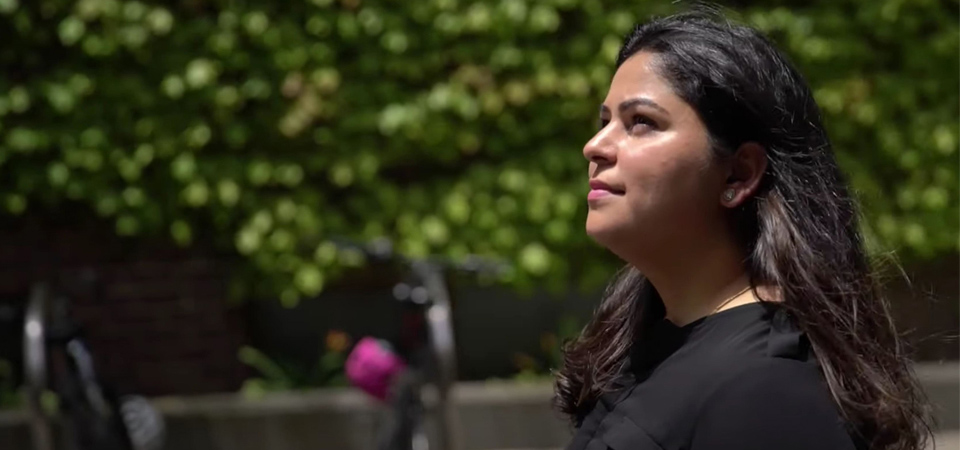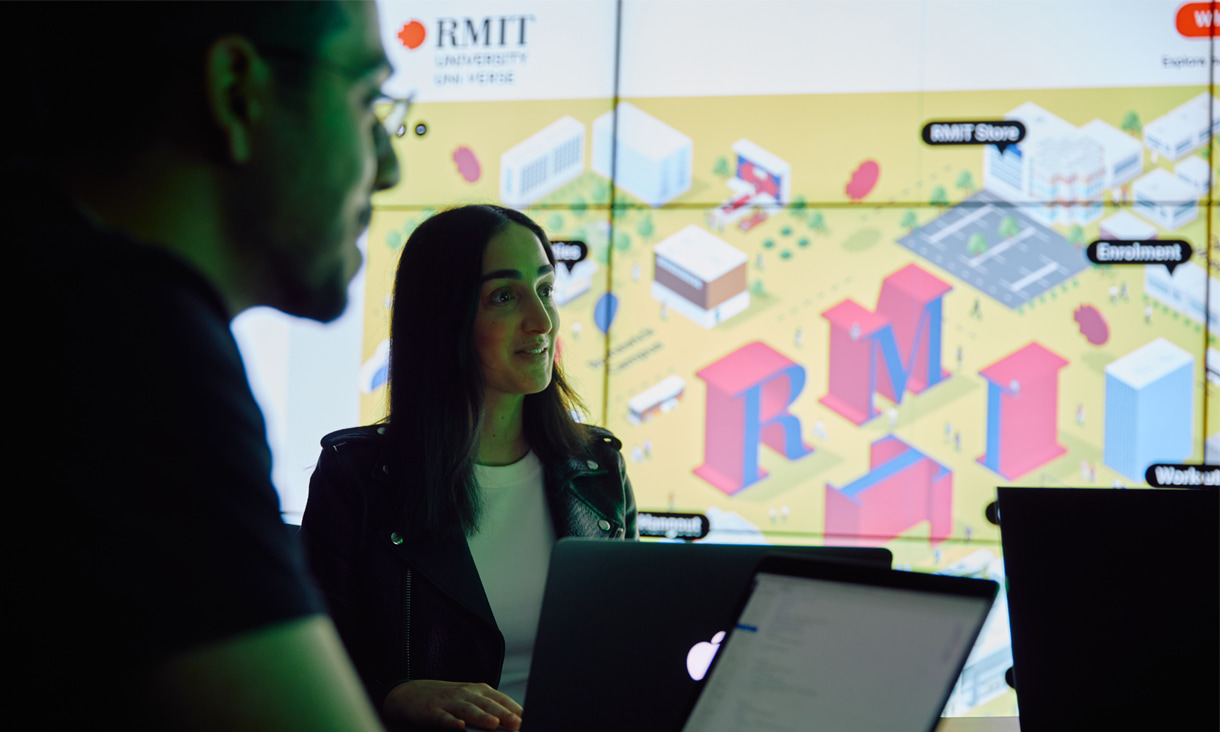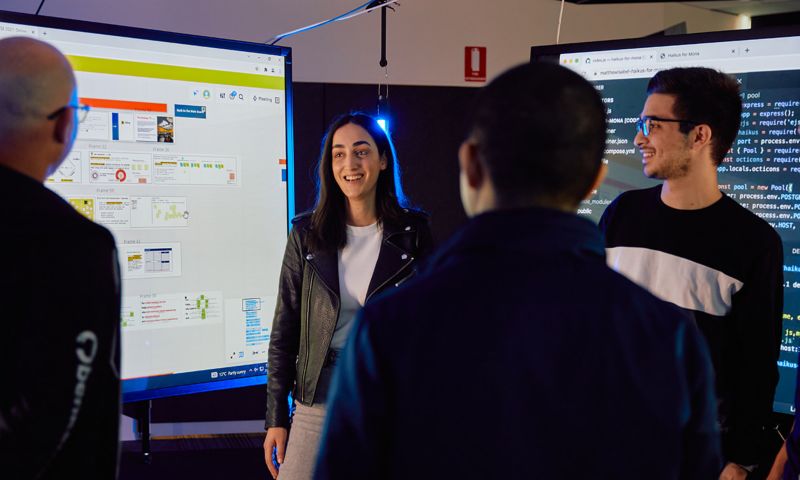The future is digital
As technology underpins almost everything we do in today’s digital age, computer scientists and IT specialists are vital in helping manage data, provide network support and maintain security.
Whether you're furthering your education, transitioning from another industry, or seeking to upgrade existing skills, at RMIT you can uncover the multi-dimensional world of modern technology in fields such as blockchain and information systems, computer science, information and security, information technology, and software engineering.
With hands-on experience, industry-relevant projects, and access to cutting-edge resources, RMIT sets you on the path to becoming a sought-after professional in the tech world.
Bootcamp2Studio — an innovative way of learning
Our undergraduate IT courses use a teaching model known as Bootcamp2Studio. In this model, you will undertake up to six weeks of intensive, focused learning across a programming session known as a 'boot camp' to give you a solid foundation in theory. Next, you'll spend nine weeks learning in a studio-style environment. Here, you'll go into more advanced techniques and apply them to solve real-world challenges, working both in groups and independently.
Through this hybrid form of teaching, you'll build transferable skills in problem solving and teamwork, learn to adapt to new projects, technologies and settings quickly, and be exposed to professional practice and standards that prepare you for your future workplace.











